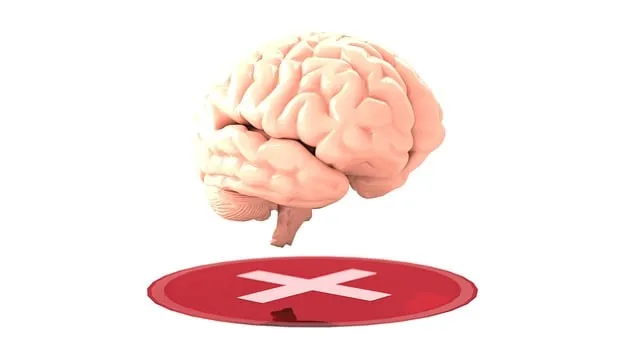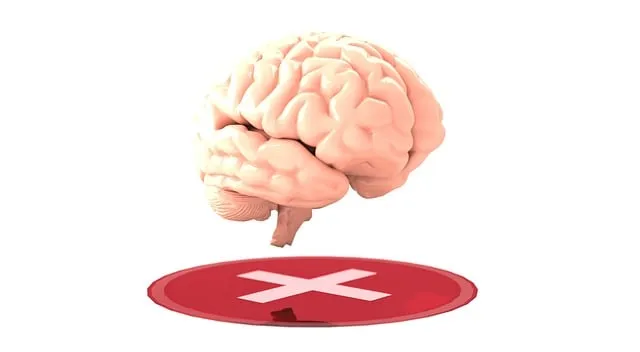Risk assessment is a core process at Kaiser Castle Rock, guiding mental health care by identifying challenges, uncovering issues, and predicting outcomes for self-harm, suicide, substance abuse, and interpersonal conflicts. Accessing their services involves understanding individual therapy, specialized programs, and evidence-based practices like Social Skills Training. Professionals navigating these services face risks of compassion fatigue and burnout, requiring support systems and coping strategies. Kaiser Castle Rock employs a multi-faceted approach emphasizing emotional intelligence, structured coaching, and daily mental wellness coaching to mitigate risks and enhance client outcomes while prioritizing professional well-being. Staying current with research findings and best practices is crucial for accurate, comprehensive, and tailored risk assessments, ensuring quality mental health services through Kaiser Castle Rock.
Mental health professionals constantly face unique challenges, including managing their own well-being. This comprehensive guide delves into essential risk assessment practices tailored for their specific needs. We explore effective strategies to navigate Kaiser Castle Rock—uncovering pathways to secure mental health services. By understanding potential risks and implementing robust management techniques, professionals can enhance patient care and personal resilience. This article offers practical insights on identifying hazards, fostering a safe environment, and continuously improving risk assessment processes.
- Understanding Risk Assessment in Mental Health: A Comprehensive Guide
- Navigating Kaiser Castle Rock: Unlocking Access to Mental Health Services
- Identifying Risks: Potential Hazards for Mental Health Professionals
- Implementing Effective Risk Management Strategies
- Continuous Improvement: Regularly Evaluating and Updating Risk Assessments
Understanding Risk Assessment in Mental Health: A Comprehensive Guide

Risk assessment is a vital process for mental health professionals to ensure patient safety and guide effective treatment planning. It involves a comprehensive evaluation of various factors that may impact an individual’s mental wellness, including their current state, past history, and potential triggers. By understanding these risks, professionals can tailor interventions and support systems to promote emotional healing processes.
For those seeking mental health services through Kaiser Castle Rock, or any healthcare provider, risk assessment serves as a foundational step in the therapeutic journey. It helps identify emotional regulation challenges, uncover underlying issues, and predict potential outcomes. This process involves collecting detailed information from clients, conducting thorough assessments, and utilizing specialized tools to analyze risks related to self-harm, suicide, substance abuse, and interpersonal conflicts. Through this guide, mental health professionals can navigate complex cases, offer appropriate support, and facilitate access to the right resources for emotional regulation and overall mental wellness.
Navigating Kaiser Castle Rock: Unlocking Access to Mental Health Services

Navigating Kaiser Castle Rock is a crucial step for individuals seeking access to mental health services within the robust framework offered by Kaiser. This process involves understanding and utilizing the resources available through this healthcare provider, which has become a game-changer in managing moods and enhancing social skills. By delving into the intricacies of Kaiser Castle Rock, one can unlock comprehensive support tailored to their unique needs.
To get started, it’s essential to familiarize oneself with the range of services offered, from individual therapy sessions to specialized programs focused on trauma recovery or anxiety management. Through effective risk management planning, mental health professionals can ensure they and their clients receive the best care possible. This includes staying updated on evidence-based practices, such as those used in Social Skills Training, which not only benefit patients but also contribute to a more comprehensive Risk Management Planning process.
Identifying Risks: Potential Hazards for Mental Health Professionals

Mental health professionals, despite their noble calling, are not immune to risks and potential hazards. Identifying these risks is a critical step in ensuring their well-being and maintaining high-quality care. One of the unique challenges they face is managing the emotional toll of their work. The nature of their job often involves confronting clients with profound mental health issues, trauma, or intense emotions, which can take a significant psychological burden. This constant exposure to distressing situations may lead to compassion fatigue, burnout, and even secondary traumatic stress disorder (STSD).
Additionally, the confidential nature of therapy sessions requires professionals to maintain strict boundaries, which can be challenging as they juggle personal lives and work demands. Balancing these responsibilities while managing their own mental wellness is crucial. Accessing support systems, such as supervision and peer groups, can help build a confidence-boosting network. Encouraging open discussions about emotional challenges and implementing effective coping strategies are essential steps in depression prevention and overall risk mitigation for these professionals.
Implementing Effective Risk Management Strategies

Implementing effective risk management strategies is paramount for mental health professionals to ensure the well-being of both clients and themselves. At Kaiser Castle Rock, we understand that navigating complex situations requires a multi-faceted approach. Our programs focus on enhancing emotional intelligence as a cornerstone for safe and supportive interactions, fostering self-esteem improvement through structured coaching, and integrating mental wellness coaching programs into daily practice.
By adopting these strategies, mental health professionals can mitigate potential risks while creating an environment conducive to healing. Through continuous training and self-reflection, professionals gain the resilience needed to handle challenging situations, thereby facilitating better client outcomes and personal growth. This proactive approach ensures that both clients receive the quality care they deserve and professionals maintain their own mental wellness, making it easier to get the mental health services you need through Kaiser Castle Rock.
Continuous Improvement: Regularly Evaluating and Updating Risk Assessments

Mental health professionals must adopt a continuous improvement mindset when it comes to risk assessment. Regularly reviewing and updating risk evaluations is essential to stay current with best practices and emerging challenges in the field. By implementing this approach, practitioners can ensure their assessments remain accurate, comprehensive, and tailored to individual client needs. This dynamic process involves staying abreast of new research findings, integrating them into risk management strategies, and adapting to changes in regulatory requirements.
For mental health services through Kaiser Castle Rock, continuously refining risk assessment practices is crucial. It enables professionals to provide up-to-date support, employing the latest coping skills development, crisis intervention guidance, and resilience-building techniques. Through regular evaluation, they can identify gaps in their assessments, fill them with evidence-based interventions, and ultimately enhance service delivery outcomes for Kaiser Castle Rock clients.
Mental health professionals play a vital role in helping others, but they also face unique risks. By understanding risk assessment and implementing effective management strategies, such as those outlined for navigating Kaiser Castle Rock to access mental health services, professionals can ensure a safer and more supportive work environment. Regularly evaluating and updating risk assessments is crucial to stay ahead of emerging hazards, fostering continuous improvement in their practice. This comprehensive guide equips professionals with the knowledge needed to protect themselves and their clients, ultimately enhancing the quality of mental health care delivered. For those seeking mental health services through Kaiser Castle Rock, these insights underscore the importance of proactive risk management.






